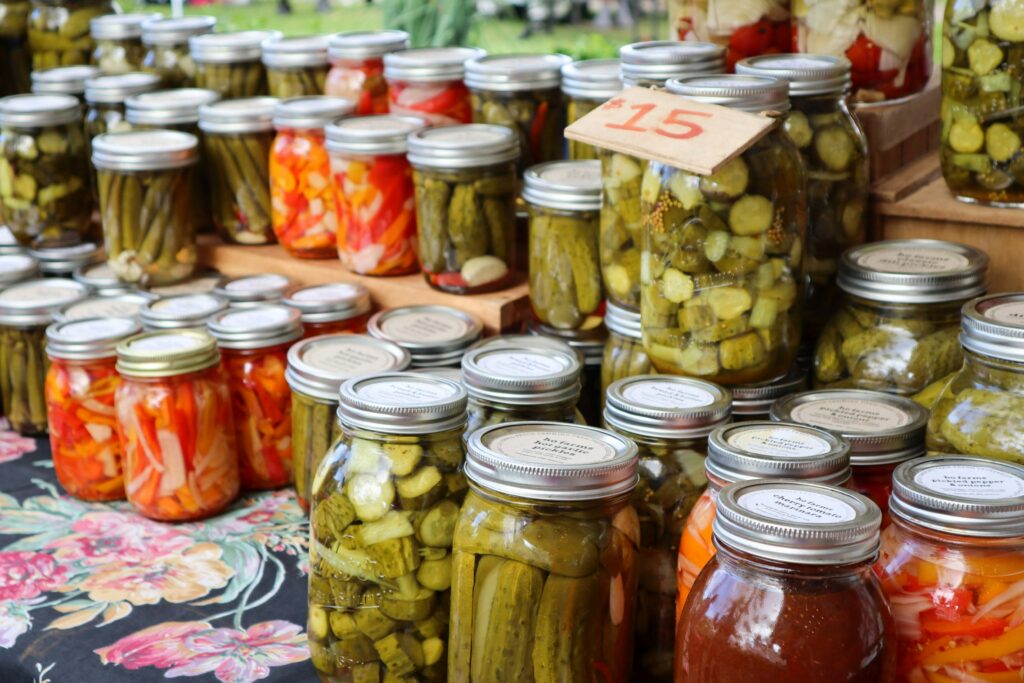
Are you here for the gut-loving live cultures and probiotic powerhouses that keep your digestive system singing, or are you a lifelong admirer of fermented foods’ strong, tangy magic to your taste buds?
These days, health experts are paying close attention to naturally fermented foods because they may help improve your gut microbiome, which is made up of the approximately 100 trillion bacteria and microorganisms that reside in your digestive tract.
In this blog, we are diving into fun, flavorful, and surprisingly easy ways to work fermented foods into every meal, from energizing breakfasts to satisfying lunches, comforting dinners, and even those mid-day snack cravings.
Ready to give your daily routine a tasty, gut-friendly twist?
What are Fermented Foods?

Fermented foods are foods and beverages that have undergone controlled microbial growth and enzymatic conversion of food components. Microorganisms like bacteria, yeast, or mold ferment sugars and starches to produce beneficial compounds, including probiotics.
Best Fermented Food for Gut Health

Here are some best foods you should eat for a healthy gut:
- Kimchi
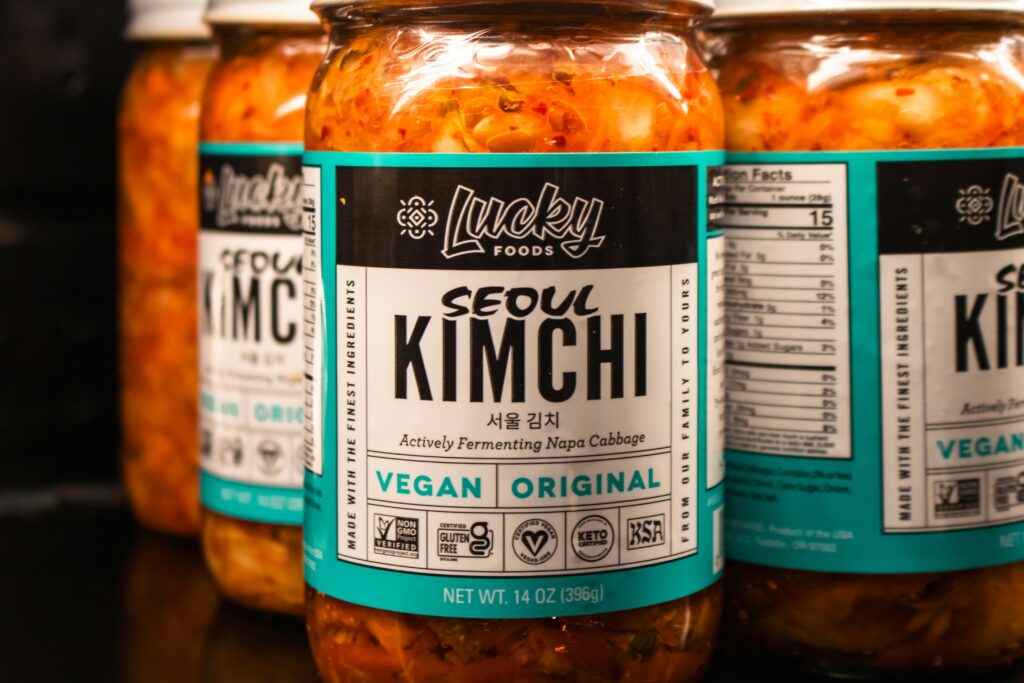
Kimchi is a traditional Korean dish made from fermented cabbage and radishes, seasoned with garlic, chili, and spices. It’s rich in probiotics, great for gut health, and may offer other benefits like boosting immunity. Enjoy it on its own, with rice, or as a flavorful topping for tacos and burgers.
- Sauerkraut
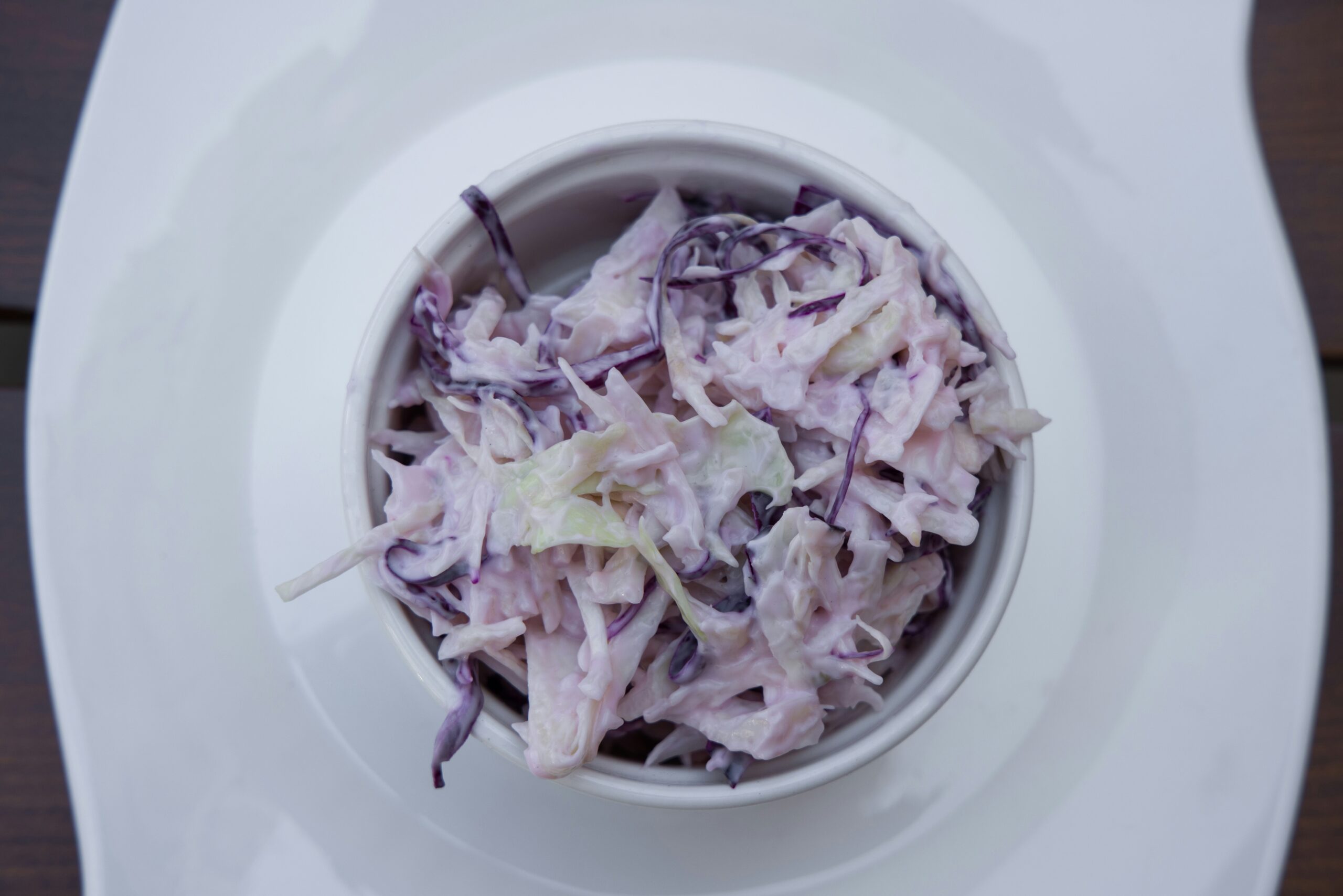
Sauerkraut is fermented cabbage rich in probiotics, fiber, and vitamins. For the best benefits, choose unpasteurized versions from the refrigerated section. It’s great on sandwiches, salads, or as a tangy side.
- Kefir
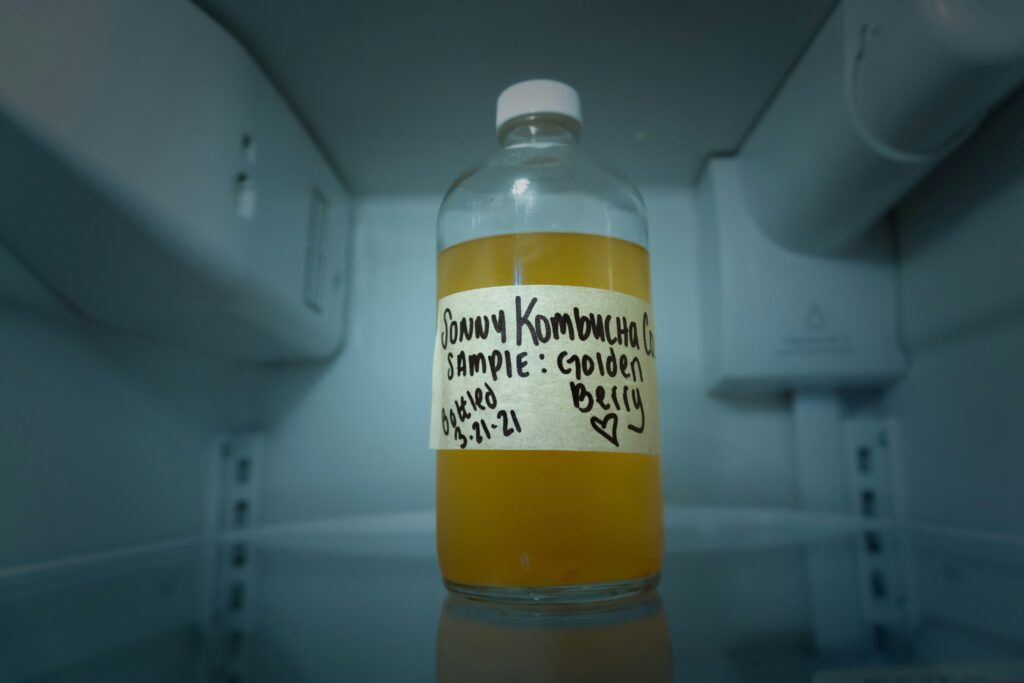
Kefir is a fermented milk drink, similar to drinkable yogurt, packed with probiotics, calcium, and vitamins. It’s easy to digest, especially for those with lactose intolerance, and offers benefits for gut health, immunity, and even heart health. Kefir is great in smoothies or sipped on its own.
- Kombucha
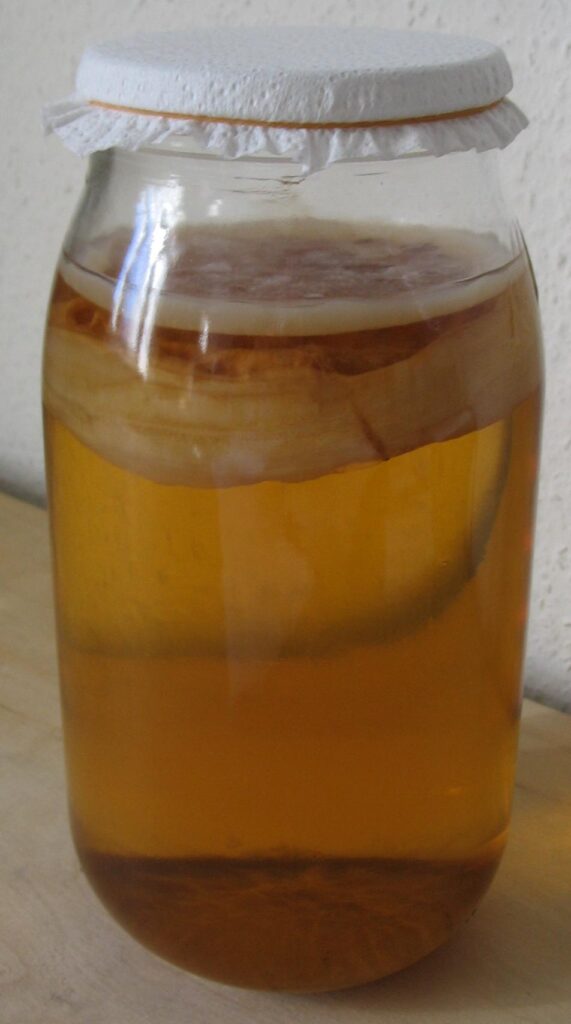
Kombucha is a tangy, fizzy tea made by fermenting black tea with sugar and a mix of bacteria and yeast. This probiotic-packed drink is often flavored with fruit or herbs and is known for its potential antioxidant benefits.
While it does contain trace amounts of alcohol, it’s not enough to cause any noticeable effects. You can find kombucha in most grocery stores and farmers’ markets, making it an easy and refreshing way to support your gut health.
- Miso
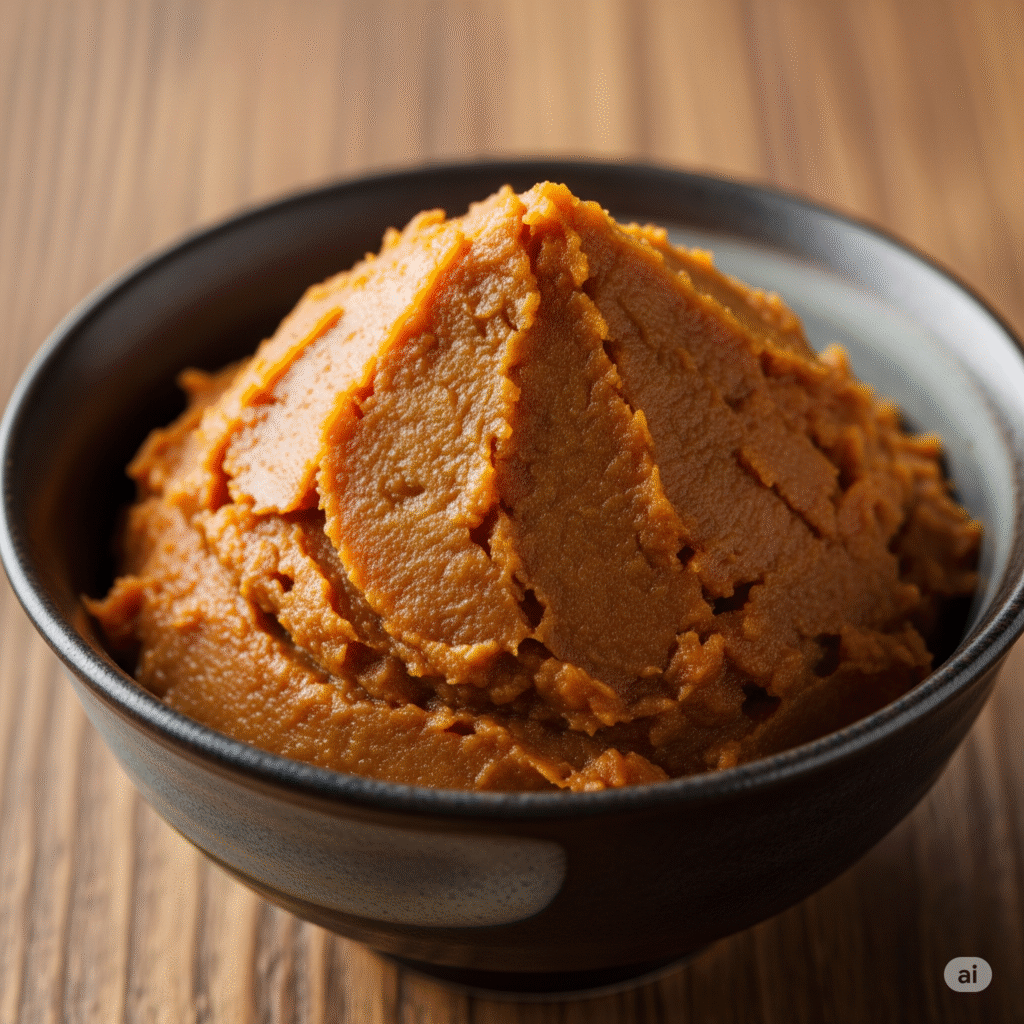
Miso is a fermented paste made from soybeans, barley, or rice and is a key ingredient in traditional Japanese dishes like miso soup. It’s rich in umami flavor, adding depth to soups, salad dressings, and marinades. A little goes a long way since it’s quite salty, but it’s a great way to boost flavor and gut health in your meals.
- Tempeh
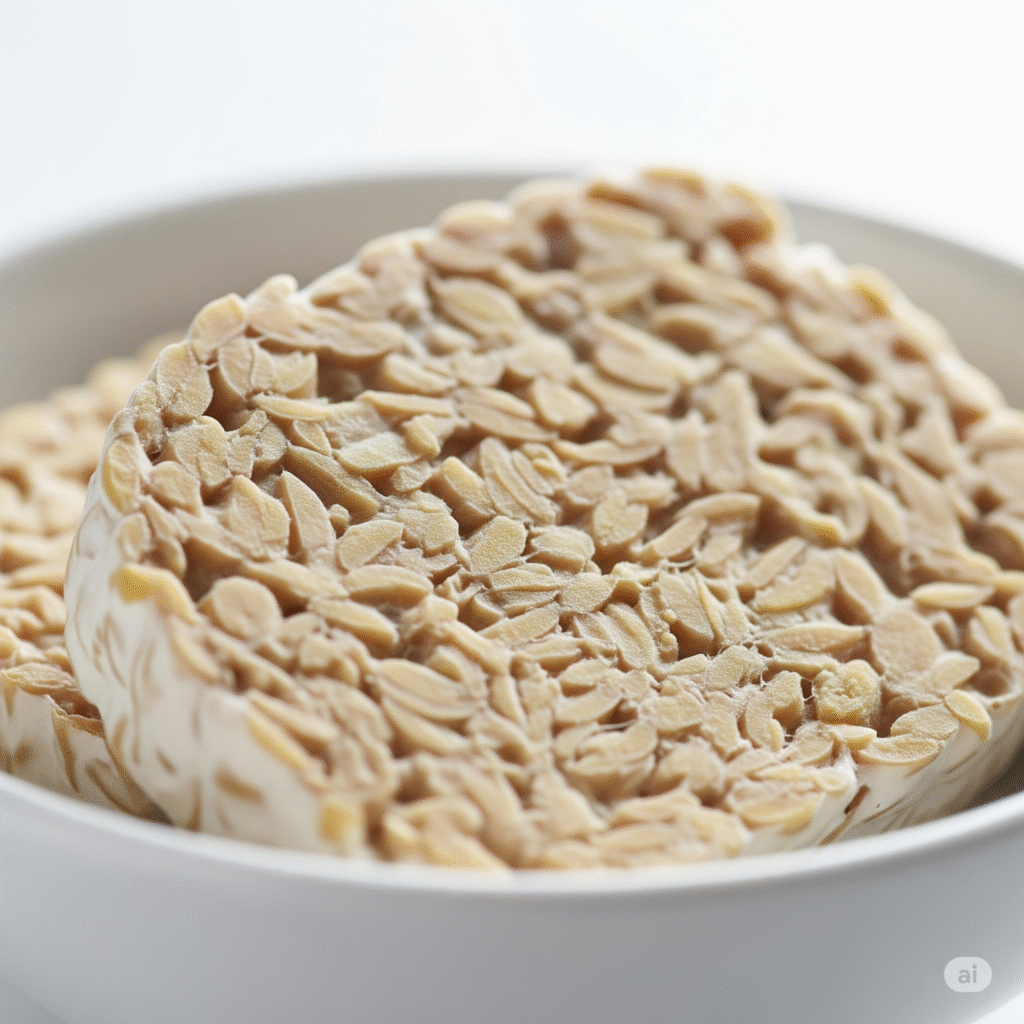
Tempeh is a fermented soy product that originated in Indonesia. Unlike tofu, which is soft and spongy, tempeh has a firmer texture and a nuttier flavor. It’s packed with protein, containing all the essential amino acids, making it a great plant-based protein source. Plus, it’s rich in probiotics, adding a healthy boost to your meals.
- Yogurt
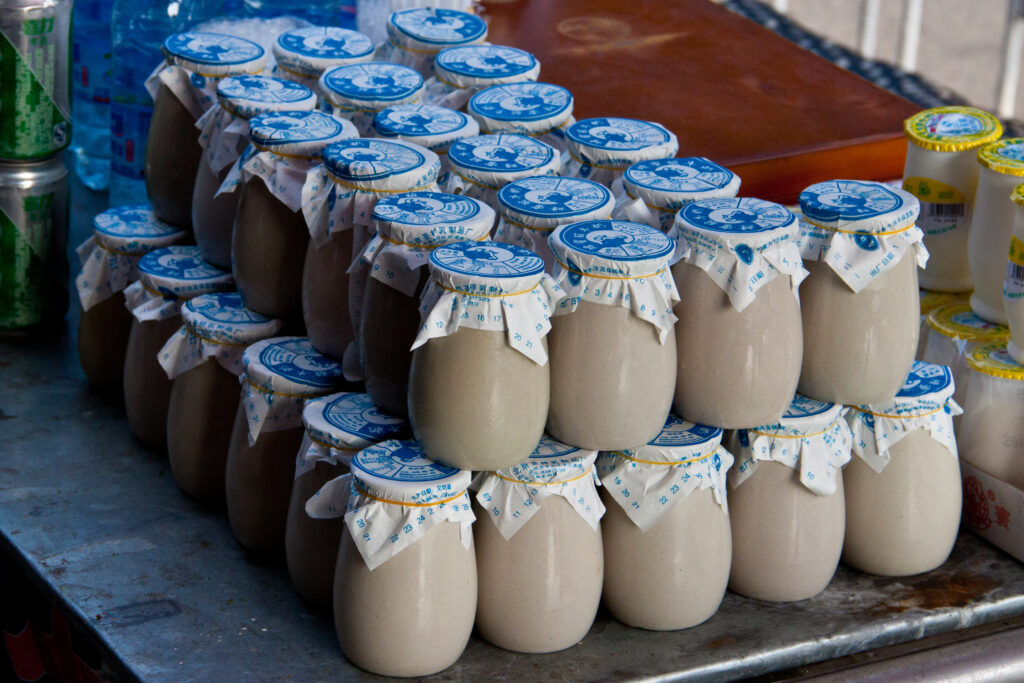
Creator: Nikolaj Potanin
Copyright: Copyright: Nikolaj Potanin
Yogurt is made by fermenting milk with live bacterial cultures, making it one of the most popular probiotic-rich foods around. These friendly bacteria help support digestion and may even make yogurt easier to tolerate for those with lactose sensitivity. You’ll find plenty of options today, from classic dairy to vegan alternatives, all offering a creamy, gut-friendly boost.
Health Benefits of Fermented Foods
The following are some of the main justifications for increasing your intake of fermented foods:
- Promotes a Healthy Gut Microbiome: Fermented foods are rich in probiotics, which help balance the good bacteria in your gut.
- Improves Digestion: Probiotics aid in breaking down food and absorbing nutrients more efficiently.
- Reduces Bloating: Regular consumption of fermented foods can alleviate bloating and discomfort.
- Helps with IBS and Constipation: Fermented foods may reduce symptoms of digestive issues like irritable bowel syndrome and constipation.
- Protects the Gut Barrier: Probiotics support the gut barrier, preventing harmful bacteria and pathogens from entering.
- Boosts Immune Function: Probiotics in fermented foods help stimulate the production of immune cells.
- Rich in Key Nutrients: Fermented foods are packed with vitamins and minerals like vitamin C, zinc, and vitamin D, which support immunity.
- Fights Infections: Regular consumption of probiotic-rich foods can help protect against infections and improve recovery time.
- Enhances Nutrient Absorption: Fermentation breaks down compounds like phytates that block nutrient absorption.
- Boosts Mineral Intake: Helps your body absorb more iron, calcium, zinc, and B vitamins.
- Supports Enzyme Production: Encourages the production of digestive enzymes for better nutrient breakdown.
Conclusion
Probiotics are beneficial bacteria that are found in fermented foods. Our guts are home to bacteria that have an impact on our health.
Other health-promoting ingredients like protein, fiber, vitamins, minerals, and antioxidants are frequently found in fermented foods. Try adding some fermented foods to your plate every day; they can improve your general health.
Want to improve your gut health? Start your diet today.

